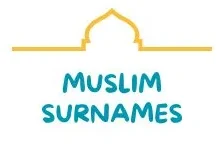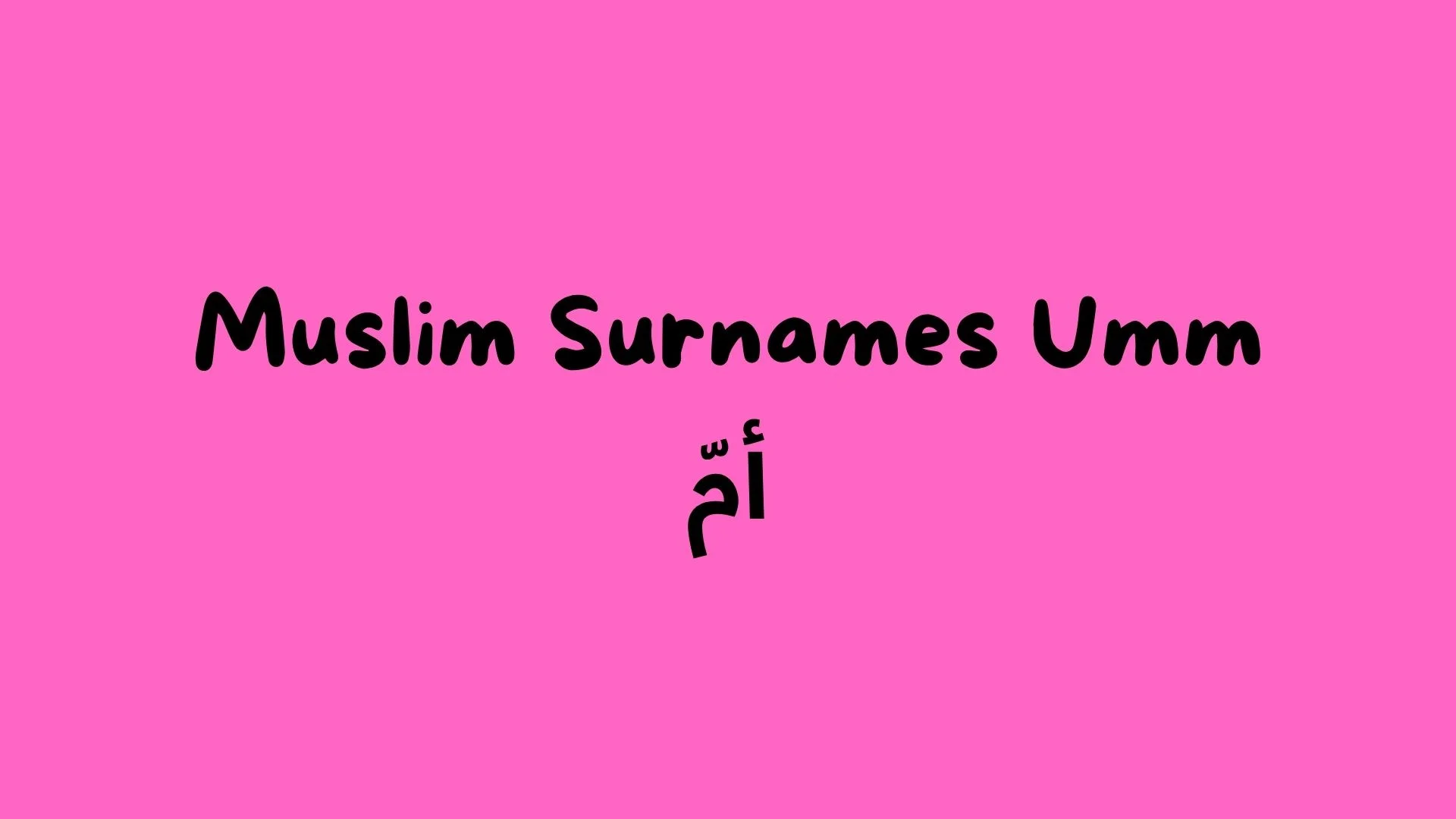Muslim Surnames with the Prefix Umm
The prefix “Umm-“ (Arabic: أمّ) holds great cultural, linguistic, and historical significance in Islamic and Arab traditions. It literally means “Mother of” and is often used as a kunya (honorific) for women, reflecting respect, lineage, or a characteristic trait. Unlike a family name, it’s typically attached to the name of the person’s child or a symbolic attribute.
Muslim surnames with the prefix Umm are widely recognized in Islamic heritage and have been borne by many noble and revered women, especially during the time of Prophet Muhammad ﷺ. Let’s explore some notable examples of Muslim surnames with prefix Umm.

| Name | Arabic | Meaning |
|---|---|---|
| Umm-Kulthum | أم كلثوم | Mother of Kulthum |
| Umm-Habiba | أم حبيبة | Mother of Habiba (beloved) |
| Umm-Salama | أم سلمة | Mother of Salama (peace) |
| Umm-Ayman | أم أيمن | Mother of Ayman |
| Umm-Fadl | أم الفضل | Mother of Fadl (virtue) |
| Umm-Hani | أم هانئ | Mother of Hani |
| Umm-Ruman | أم رومان | Mother of Ruman |
| Umm-Amarah | أم عمارة | Mother of Amarah |
| Umm-Darda | أم الدرداء | Mother of Darda |
Muslim Surnames with the Prefix Umm
Umm-Kulthum (أم كلثوم)
A well-known name, borne by one of the daughters of Prophet Muhammad ﷺ. “Kulthum” refers to a woman with a full face and cheeks. The name is still used widely across the Muslim world.
Umm-Habiba (أم حبيبة)
She was a wife of Prophet Muhammad ﷺ. The name “Habiba” means beloved. Umm-Habiba’s real name was Ramla bint Abi Sufyan (RA), and she embraced Islam during the early difficult years of the Prophet’s mission.
Umm-Salama (أم سلمة)
Another respected wife of the Prophet ﷺ, known for her wisdom, patience, and political insight. “Salama” means peace or safety. Her full name was Hind bint Abi Umayya (RA).
Umm-Ayman (أم أيمن)
A caretaker of Prophet Muhammad ﷺ during his childhood and among the early believers. “Ayman” means blessed or fortunate. Her real name was Barakah (RA). The Prophet ﷺ regarded her as family and held her in great esteem.
Umm-Fadl (أم الفضل)
Known in early Islamic texts, she was the wife of Al-Abbas ibn Abdul Muttalib (RA), the Prophet’s uncle. “Fadl” means virtue or excellence. She narrated several Hadiths and supported the Prophet ﷺ during key moments.
Umm-Hani (أم هانئ)
A cousin of Prophet Muhammad ﷺ, her given name was Fakhita bint Abi Talib (RA). She is known for her hospitality and noble character. She witnessed the miraculous event of Isra and Mi’raj when the Prophet ﷺ visited her home.
Umm-Ruman (أم رومان)
The mother of Aisha (RA), one of the most beloved wives of the Prophet ﷺ. Known for her piety and patience, Umm-Ruman (RA) played a key role in the early Muslim community.
Umm-Amarah (أم عمارة)
Nusaybah bint Ka’ab (RA), a brave female warrior who defended the Prophet ﷺ during the Battle of Uhud. “Amarah” means leadership or building. Her courage is celebrated in Islamic history as a symbol of female strength and faith.
Umm-Darda (أم الدرداء)
A prominent female scholar of hadith and fiqh from the early Islamic era. Her devotion to knowledge and piety made her respected among scholars of both genders.
Interesting Facts about Muslim Surnames with the Prefix Umm
- “Umm-” names are not necessarily biological: Sometimes, the name is metaphorical or honorific, not indicating actual motherhood.
- Cultural usage varies: In Arab countries, it is still common for women to be referred to as Umm + the name of their eldest son.
- Men also have an equivalent: The male version is “Abu-“ meaning “Father of”, e.g., Abu-Bakr (RA), Abu-Talib (RA).
- Often symbolic: A woman might be called Umm-Sabr (Mother of Patience) or Umm-Hikmah (Mother of Wisdom) without having children by those names.
FAQs about Muslim Surnames with the Prefix Umm
Q1: Is Umm- a surname?
A: No, it’s not a surname in the Western sense. It is a kunya (honorific title) used in Arab and Islamic naming traditions.
Q2: Can a woman be called Umm- before having children?
A: Yes, in some cases, a symbolic or honorary name is used. For instance, Umm-Sabr for a patient woman.
Q3: Are Umm- names used in non-Arab cultures?
A: While the form is Arabic, it is respected and occasionally used in other Muslim cultures, especially in religious or historical contexts.
Conclusion
Muslim surnames with the prefix Umm, beautifully reflects the Islamic tradition of honor, respect, and identity. Whether referring to a revered companion of Prophet Muhammad ﷺ or symbolizing a moral trait, these names continue to hold significance across generations and cultures.


1 thought on “Muslim Surnames with the Prefix “Umm” – Meaning “Mother of””